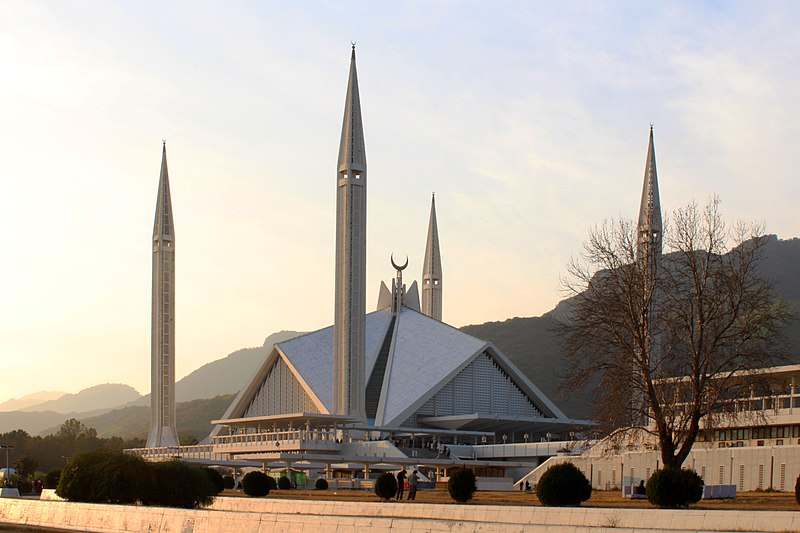Cape Town: A Historical and Cultural Gem at the Tip of Africa
Cape Town, the jewel of South Africa's Western Cape province, is a city that boasts a rich tapestry of history, stunning landscapes, and vibrant cultures. Nestled between the icy currents of the Atlantic Ocean and the rugged beauty of Table Mountain, Cape Town is not only a gateway to Africa's southernmost point but also a reflection of the continent's complex historical narrative. This article delves into the diverse and fascinating layers that define Cape Town, unraveling its journey from indigenous inhabitation to its status as a modern metropolis.
The Early Inhabitants and European Arrival
Long before European explorers set foot on its shores, the region around Cape Town was inhabited by the Khoisan people. These indigenous tribes, consisting of the Khoikhoi herders and the San hunter-gatherers, had established their presence in the region for thousands of years, adeptly adapted to its diverse ecosystems. The Khoisan were well-known for their unique click languages and intricate understanding of Southern Africa’s natural environment.
The European chapter of Cape Town's history began in the late 15th century when Portuguese navigators, led by Bartolomeu Dias, first rounded the Cape of Good Hope in 1488. However, it was only in 1652 that the Dutch East India Company, under the leadership of Jan van Riebeeck, established a permanent settlement. The company's primary goal was to create a way station where ships traveling to the East Indies could replenish their supplies. This marked the beginning of significant change for the indigenous communities, as the influx of settlers led to the displacement and subjugation of the Khoisan.
Colonial Era and the Growth of Cape Town
The Dutch colony rapidly expanded, driven by the fertile land surrounding the Cape and the strategic importance of the location. Cape Town became a bustling port, bustling with activity from traders and colonists alike. To fulfill labor demands, the Dutch imported slaves from East Africa, Madagascar, and the East Indies, creating a multicultural and multiethnic society. This blending of cultures laid the foundation for the unique Afro-European culture that would later characterize the city.
In 1795, during the turmoil of the Napoleonic Wars, the British seized control of Cape Town to prevent it from falling into French hands. The British would definitively annex the Cape Colony in 1806, marking the beginning of British rule in the region. This era brought about substantial changes, including the abolition of slavery in 1834, which significantly altered the social and economic fabric of Cape Town.
From the Cape Colony to the Union of South Africa
Throughout the 19th century, Cape Town continued to flourish as a cosmopolitan hub, drawing immigrants from Europe and beyond. It was during this period that iconic landmarks such as the Cape Town City Hall and the University of Cape Town were established. The city was also a significant center for the anti-slavery movement, playing a crucial role in broader societal changes.
Cape Town's political landscape underwent a dramatic transformation with the unification of South Africa in 1910. As the legislative capital of the newly formed Union of South Africa, the city found itself at the heart of the country's political developments. The early 20th century saw the emergence of apartheid, a brutal policy of racial segregation that deeply scarred the nation and left a lasting legacy on its cities, including Cape Town.
A City of Resilience and Transformation
Despite the oppressive apartheid regime, Cape Town became a focal point for resistance and activism. The city's diverse population, long accustomed to multicultural coexistence, played a significant role in challenging apartheid policies. The iconic District Six, once a vibrant neighborhood, became a powerful symbol of forced removals after its residents were evicted under apartheid laws.
The post-apartheid era marked a period of significant reconstruction and healing for Cape Town. The city embraced its multicultural heritage, promoting inclusivity and equality. Robben Island, where Nelson Mandela was imprisoned for 18 years, was transformed from a place of subjugation to a symbol of reconciliation and hope.
Today, Cape Town stands as a beacon of resilience and transformation, a city that continues to evolve while cherishing its historical roots. With its breathtaking landscapes, enriched by the stories of its people, Cape Town is a must-visit destination for those seeking to understand the intricate tapestry of South African history and culture.
In the next part of this article, we will explore the natural wonders and contemporary life in Cape Town, shedding light on its role as a modern cultural hub and its bustling tourism industry. Stay tuned to uncover more about this captivating city.
The Natural Wonders of Cape Town
Cape Town commands attention not only for its storied past but also for its breathtaking natural scenery. The city's landscape is dominated by the imposing Table Mountain, a UNESCO World Heritage site that is as iconic to Cape Town as the Eiffel Tower is to Paris. Table Mountain's flat-topped summit, often shrouded in a layer of clouds affectionately known as the "tablecloth," offers panoramic views of the city, the coastline, and the far-reaching ocean. Hiking trails meander across this geological marvel, inviting adventurers to explore its rich biodiversity, which includes many endemic species found nowhere else on earth.
Adjacent to Table Mountain lies the Cape Peninsula, a finger of land that stretches into the Atlantic Ocean and culminates at the renowned Cape of Good Hope. This dramatic promontory, often mistakenly thought to be Africa's southernmost point, is part of the Cape Point Nature Reserve. The reserve is a hotspot for biodiversity and boasts rich flora, rugged cliffs, and secluded beaches. Tourists often glance with amazement at the windswept views and possibly spot some of the wildlife such as baboons and eland that roam the terrain.
The Vibrant Cultural Scene
In addition to its natural allure, Cape Town is a hub of cultural vibrancy, showcasing a blend of African, European, and Asian influences. The city's diverse cultural tapestry is vividly displayed in neighborhoods like Bo-Kaap, with its cobblestone streets and brightly painted houses that are home to a significant Cape Malay community. This area offers a glance into the city’s Muslim heritage and is famous for its traditional Cape Malay cuisine, with aromatic dishes that entice locals and visitors alike.
The city's cultural milieu is also embodied in its music and arts scene. Cape Town Jazz Festival, often dubbed "Africa's Grandest Gathering," is a testament to the city’s thriving music culture. It attracts international artists and visitors, bringing together diverse sounds that resonate through the city streets. Furthermore, Cape Town's numerous galleries and art spaces offer platforms for local artists to display their work, contributing to the city's reputation as a creative cradle.
The Economic Landscape
Cape Town also plays a crucial role in South Africa's economy. As a major economic hub, the city is home to important financial institutions and a burgeoning tech industry. The Cape Town International Convention Centre hosts a variety of global conferences, further affirming the city's stature on the international business stage.
Tourism is a vital component of Cape Town's economy, drawing millions of visitors each year. The vibrant V&A Waterfront, a popular location for both shopping and entertainment, is a testament to the city's allure. From luxury hotels and fine dining restaurants to educational attractions such as the Two Oceans Aquarium, the Waterfront epitomizes the blend of leisure and learning that Cape Town offers its guests.
Social Challenges and Community Initiatives
Despite its numerous attractions, Cape Town is not without its challenges. The city grapples with social inequalities, stemming largely from its historical legacy of segregation and dispossession. Many communities continue to face issues such as poverty, inadequate housing, and limited access to quality education.
However, Cape Town is also a city of action and advocacy. Numerous grassroots organizations and community-driven projects strive to address these social disparities. Initiatives focused on education, youth empowerment, and sustainable living are making strides in transforming the socio-economic landscape. One notable example is the "Greenpop" initiative, which engages in urban greening and reforestation projects, marrying environmental sustainability with social empowerment.
In the ever-evolving narrative of Cape Town, these initiatives are vital threads in the fabric of a city working towards an equitable and sustainable future.
As we conclude this section of our exploration, Cape Town emerges as a city of contrasts; one where stunning nature, cultural depth, economic dynamism, and social challenges coexist. In the next and final part of this article, we will delve into the future prospects of Cape Town, focusing on urban development and its potential as a global city. Stay with us as we continue this intriguing journey through one of Africa’s most fascinating urban landscapes.
Urban Development and Innovation
Cape Town's transformation into a modern metropolis is continuously shaped by its urban development and innovative projects. This dynamic city has undertaken various initiatives to accommodate both a growing population and a pressing demand for environmentally sustainable infrastructure. One notable development is the ongoing regeneration of the Woodstock neighborhood, where a blend of residential, commercial, and cultural spaces has invigorated the area. This neighborhood serves as a microcosm of Cape Town's broader efforts to harmonize historic preservation with modern living.
Transportation is another vital aspect of Cape Town's urban development strategy. The introduction of the MyCiTi rapid bus transit system has significantly improved the connectivity across the city, providing a reliable and efficient public transportation option that reduces reliance on personal vehicles and decreases the urban carbon footprint. Furthermore, there are increasing efforts to expand cycling lanes and pedestrian-friendly spaces, emphasizing a shift towards sustainable urban mobility.
Cape Town as a Global City
With an expanding global footprint, Cape Town is positioning itself as a significant player on the international stage. The city remains deeply connected to its African roots while embracing global trends in technology and business. It has become a burgeoning tech hub, attracting startups and tech companies keen to capitalize on the city’s young, dynamic workforce and strategic location as a gateway to the rest of Africa.
Moreover, Cape Town's universities and research institutions are drivers of innovation and thought leadership, particularly in areas like environmental science and renewable energy. The city is pioneering initiatives in sustainable urban living, leveraging its natural resources—abundant sunshine and coastal winds—to spearhead renewable energy projects. These initiatives are not just environmentally driven but also aim to address energy security and economic resilience.
Cape Town's international appeal is further enhanced by its cultural diplomacy. Through events such as the Cape Town International Film Market & Festival and its thriving art exhibitions, the city fosters a cultural exchange that transcends borders, positioning itself as a cultural ambassador on the global stage.
Future Challenges and Opportunities
While Cape Town makes strides in various sectors, it faces future challenges that will require innovative solutions. The city must tackle issues arising from climate change, such as water scarcity and rising sea levels. The "Day Zero" crisis in 2018, when Cape Town came perilously close to running out of water, is a stark reminder of the vulnerability of urban centers to environmental changes. This experience has catalyzed efforts to improve water management and infrastructure, setting a precedent for other cities facing similar threats.
The integration of informal settlements into the urban framework also presents a critical challenge. As Cape Town continues to grow, addressing these areas' needs for infrastructure, healthcare, and education becomes increasingly urgent. Innovative urban design and inclusive policy-making are essential to ensure that development benefits all citizens and promotes social equity.
Nonetheless, these challenges bring with them opportunities for Cape Town to lead by example. By embracing a forward-thinking approach and engaging in international collaborations, the city can position itself as a pioneer in sustainable urban living and inclusive growth.
Conclusion
Cape Town is more than just a stunning destination; it is a city that embodies resilience, transformation, and innovation. Its rich historical legacy, coupled with its breathtaking natural beauty and vibrant cultural scene, makes it a unique blend of the past and present. As Cape Town navigates the complexities of a rapidly changing world, it continues to inspire with its commitment to sustainability and inclusivity.
The journey of Cape Town is far from over. As the city carves out its future path, it remains firmly rooted in its diverse heritage, providing a foundation upon which new stories and successes will be built. For visitors and residents alike, Cape Town offers an unparalleled glimpse into the heart of South Africa's evolution and the promising potential that lies on the horizon.
























Comments